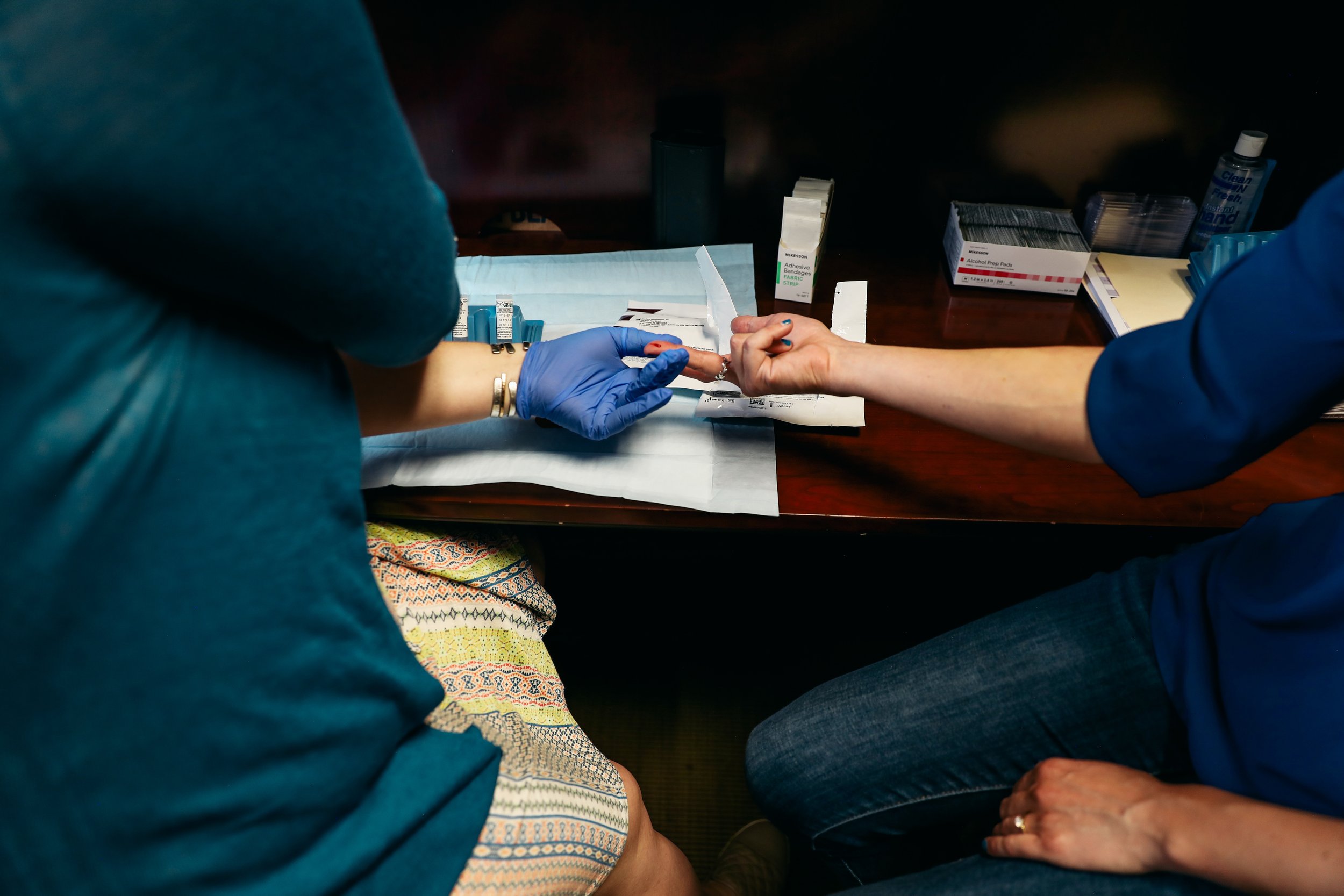
Hepatitis C Testing
The Hepatitis C Virus (HCV) can spread when people share things like needles, syringes, cookers, or any equipment used for injecting drugs. The virus that causes HCV lives in blood, and when people share injection equipment, even just once, HCV can pass from one person to another. This happens because the tiny bit of blood from someone who is HCV positive gets into the body of someone who is HCV negative. HCV is treatable but there is no vaccine for it. The sooner you get tested the sooner things can start changing.
Our goal is to make testing as easy as possible. To get tested you can drop into our office between 10:00 am-1:00 pm Tuesday-Friday, call us at 801-702-3539, or email us at mackenzie@shrpexchange.org to schedule.
Should I get tested?
What to expect testing at SHRP.
Expect testing to take 20-30 minutes, possibly longer based on what tests you’re getting, any questions you have, and the results. Everything is confidential. We are here to answer your questions, so come with some! The test requires a small sample of blood from a finger stick for antibody testing. Sometimes a mouth swab can be used to get a sample, as long as you don’t eat or drink anything for 20 minutes before the test. If the test result is positive we may need a full blood sample to be sent out for confirmatory testing. Please let us know the best place to get a good blood sample. We send the blood sample to the health department and they conduct the confirmatory test and report the results back to us, so it may take a few business days to get those results. Confirmatory testing tells medical providers how much of the virus is present in your bloodstream and helps them understand what treatment options are best. We will answer all your questions and help you get linked to treatment, if treatment is necessary. During the appointment, we collect some medically necessary and demographic information.
We are required to report positive results to the Salt Lake County Health Department. We collect some personal and demographic information for this requirement.
What is Hepatitis C?
There are many hepatitis viruses, including A, B, C, D, and E. Hepatitis is a virus that causes inflammation of the liver. Our liver is a large, 3-pound organ in the upper right of the abdomen cavity that filters our blood to clean it. There is no vaccine to prevent Hepatitis C (HCV), but it can be treated. Hepatitis A (HAV) and B (HBV) can be prevented with a vaccine. Ask us about the HAV/HBV vaccines and how to get them.
HCV is common among people who inject drugs, transmitted by sharing injection equipment including cottons, syringes, and cookers/water. HCV spreads through blood-to-blood contact meaning the virus must be introduced to a blood pathway in order to find a new home. HCV is difficult to kill and can stay alive for up to 63 days in a syringe and up to 6 weeks on a dry surface. Symptoms of HCV can include fever, fatigue, loss of appetite, nausea, vomiting, abdominal pain, dark urine, and yellowing of the skin or eyes. You may have all symptoms, some, or none, so it’s best to get tested every few months. Without treatment of hepatitis viruses, chronic liver diseases can manifest and have caused more than 8,000 deaths “each year in the U.S. due to liver disease caused by hepatitis C.”
Find Utah specific HCV data by clicking here.
Injection drug use and hepatitis C.
It’s generally recommended to get tested every 3 months if you regularly inject substances or share any injection, snorting, or smoking equipment.
The Hepatitis C virus can stay alive for up to 6 weeks on a dry surface, for example in a needle or on a surface. Using a syringe damages the needle each time, creating the perfect hiding spots for bacteria and viruses to get stuck until the syringe is reused. In the case that you don’t have access to new syringes and have to reuse your own or use one from someone else, use 1 part water to 10 parts bleach and soak in the syringe for 2 minutes, according to the CDC. This may not eliminate all the bacteria and viruses present but there will be far less.
Around 30% of people infected with HCV will spontaneously clear the virus on their own.
You cannot reinfect yourself with HCV. It is medically impossible. The virus must be reintroduced to the bloodstream to become reinfected. However, you will always test “positive” for the virus when using the rapid tests. When someone gets Hepatitis C, their body makes antibodies to fight it. Even after the virus is gone, these antibodies stay in the blood. So, if you had Hepatitis C before, you'll keep testing "positive" on rapid tests because of these antibodies. But to know if the virus is still active, you need a blood test to check the amount of virus in your blood. This tells if the infection is still there or if it's been treated. Basically, a positive antibody test shows you had it before, but the viral load test tells if you still have it now.
Resources for hepatitis C treatment and support
We will help connect you to the appropriate resources during your testing appointment. You can find more information about Hepatitis C and health advice for people who use drugs using the resources below or by asking us vial email, call, or coming to the office.
Utah Hepatitis C Resource Guide
Click on the image for a resource guide for Utah healthcare providers and people living with hepatitis C and their caregivers.
National Harm Reduction Coalition
Learn more about Hepatitis by visiting NHRC’s Hepatitis C training guide.
Gilead Sciences
Patient assistant programs, patient counseling, and Truvada for PrEP medication assistance





